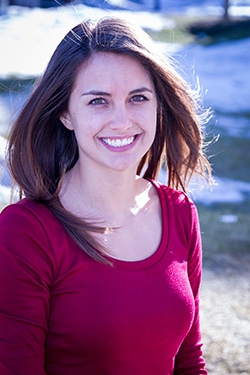Read the full story, published by the Geisel School of Medicine.
One day, while Michaela Staley, Geisel ’17, and other volunteers with a local nonprofit organization were out in the Arizona desert providing food and water for undocumented immigrants crossing the border, something unusual happened.

“We encountered a group of migrants,” she recalls. “A man called out to us when he saw us coming and asked for our help.” Wary of border patrol, migrants don’t risk making their presence known; the sighting meant that something was wrong. The man led the party of volunteers to a group of nearly 20 people huddled in a crevasse. One of the women was pregnant and a man who was vomiting clearly needed immediate medical attention.
Staley felt helpless. It was a serious situation that the volunteers were not equipped to handle. In the last decade, more than 2,000 migrants have died while walking through the Arizona desert’s harsh climate and rough terrain. “I realized that the only way the outcome of that scenario would have been different, other than changing policy, is that if I had been a physician I would have been able to help them,” says Staley, who was pursuing an undergraduate degree in global health at Arizona State University. “It was an eye-opening experience for me and it shaped the way I approached my education.
”I turned my attention inward and began thinking more critically about domestic issues. We typically think of global health in the context of poorer countries, but extreme poverty and human rights abuses are occurring here at home and urgently need attention, too," she notes.
Also an advocate for women’s rights, Staley believes that women’s health is intricately connected to a community’s ability to sustain and take care of itself. People are increasingly realizing that women are key to unleashing the power within a community, she says.

